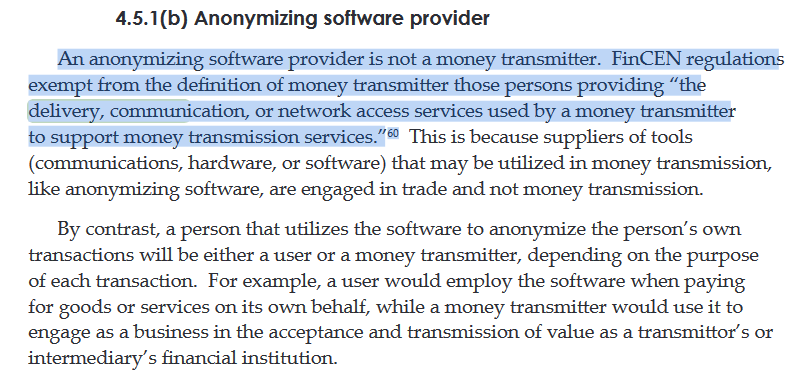Crypto advocacy group Coin Center has criticized the latest indictment of two former Tornado Cash developers, arguing that the facts offered don’t show any clear violations of money-transmitting-related offenses.
Roman Storm and Romen Semenov were indicted by the United States Office of Foreign Asset Control (OFAC) on Aug. 23 for conspiring to operate an unlicensed money-transmitting business, among other charges.
In a follow-up opinion piece, Coin Center research director Peter Van Valkenburgh argues that the claims in the indictment appear to run counter to guidance from the U.S. Financial Crimes Enforcement Network — arguing that Tornado Cash only provides the software to transmit money, rather than transmitting the money itself.
New Tornado Cash indictments seem to run counter to FinCEN guidance
Coin Center’s initial thoughts on a case that could potentially criminalize the publication of software codehttps://t.co/YCBv3vsZAE
— Neeraj K Agrawal (@NeerajKA) August 23, 2023
“The only thing the indictment claims regarding the defendants’ unlicensed money transmission is that they ‘engaged in the business of transferring funds on behalf of the public’ and did so without registering with FinCEN,” wrote Valkenburgh.
But does the indictment state any facts that actually show that the defendants engaged in any activities that qualify as money transmission under the relevant law?
He pointed to an interpretation by FinCEN as to what constitutes “money transmission services” under the U.S. Bank Secrecy Act, which states:
“An anonymizing software provider is not a money transmitter.”
Valkenburgh then referred to another excerpt stating that only people using the software can be considered money transmitters:
“[A] person that utilizes the software to anonymize the person’s own transactions will be either a user or a money transmitter, depending on the purpose of each transaction.”
While Valkenburgh said that Tornado Cash made it easier for individuals to use the protocol’s smart contracts to transmit money, he argued it doesn’t mean that the developers were money transmitters themselves.
“[But] that doesn’t somehow mean that they became transmitters merely because they provided tools that others used to transmit their own money,” Valkenburgh explained.
Valkenburgh also criticized claims in the indictment suggesting that Storm and Semenov had complete control over…
Click Here to Read the Full Original Article at Cointelegraph.com News…
